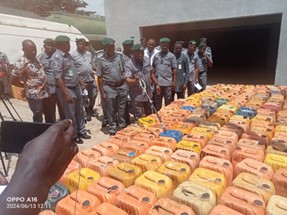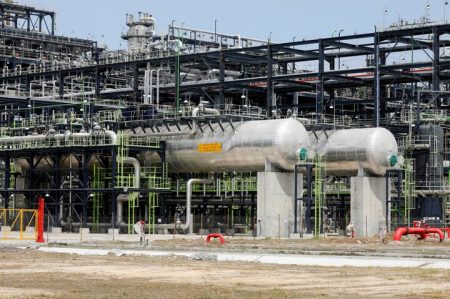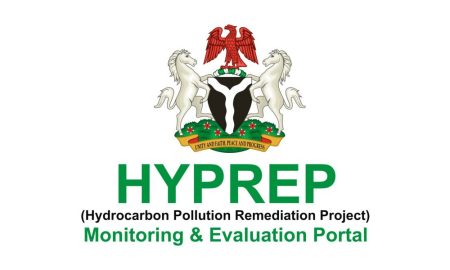 10 November 2011, Sweetcrude, London – Rights groups said Thursday Royal Dutch Shell should commit $1 billion (700,000 euros) as a first step to clean up the Niger Delta following two devastating oil spills in 2008.
10 November 2011, Sweetcrude, London – Rights groups said Thursday Royal Dutch Shell should commit $1 billion (700,000 euros) as a first step to clean up the Niger Delta following two devastating oil spills in 2008.
Shell has accepted responsibility for the spills in the southern Nigeria’s Ogoniland that affected the Bodo fishing community and has agreed to pay compensation, which is currently being decided in the British courts.
But Amnesty International and the Centre for Environment, Human Rights and Development (CEHRD) accused Shell in a report of failing to act quickly enough to fix the damage and demanded the Anglo-Dutch group make the billion-dollar contribution.
“It is time this multi-billion-dollar company owns up, cleans up and pays up,” said Aster van Kregten, Nigeria researcher for London-based Amnesty International.
“Shell’s failure to promptly stop and clean up oil spills in Bodo has devastated the lives of tens of thousands of people.”
A spokesman for Shell’s Nigerian operations insisted discussions were underway with the government to establish a clean-up fund for the Niger Delta and said efforts had been made to clean up after the Bodo spills.
Ogoniland has been blighted by oil pollution for decades and a landmark UN environment agency report released in August said the region might require the world’s biggest ever clean-up.
The United Nations Environment Programme report called for the oil industry and the Nigerian government to contribute $1 billion for a clean-up fund.
Thursday’s report however focused solely on the Bodo spills of 2008.
The Shell Petroleum Development Company of Nigeria (SPDC), the Shell subsidiary which operates a joint venture in Nigeria in which the state oil company has a major stake, insisted its bid to clean up after the spills had been hampered.
“The reality is that our efforts to undertake (a) clean-up in Bodo have been hampered by the repeated impact of saboutage and bunkering spills,” the tapping of pipelines to steal oil, said an SPDC spokesman.
But van Kregten said: “This claim has been strongly disputed by the communities and NGOs who point out that the process of collecting data on oil spills is flawed.”
The SPDC spokesman said the subsidiary was already implementing many of the recommendations in the report.
“SPDC is committed to working with the Nigerian government and other stakeholders to improve the environment in the Niger Delta,” he said.



